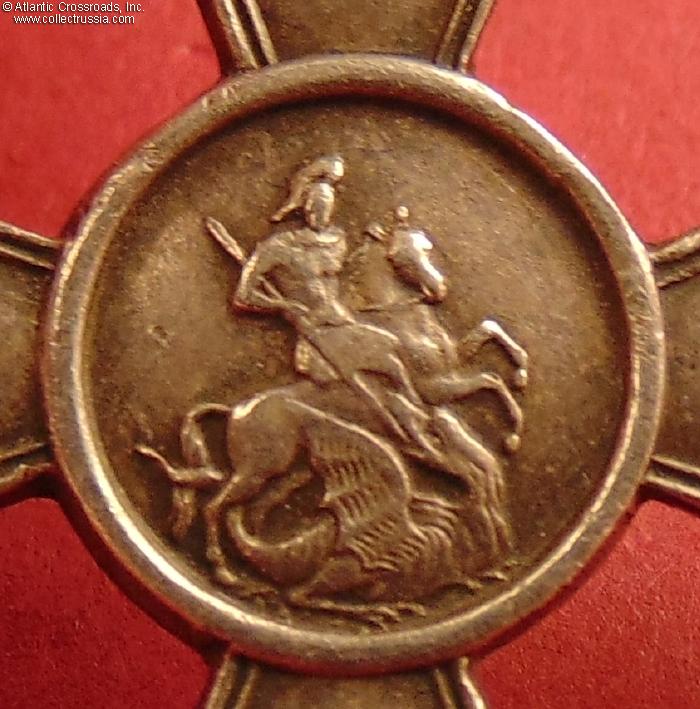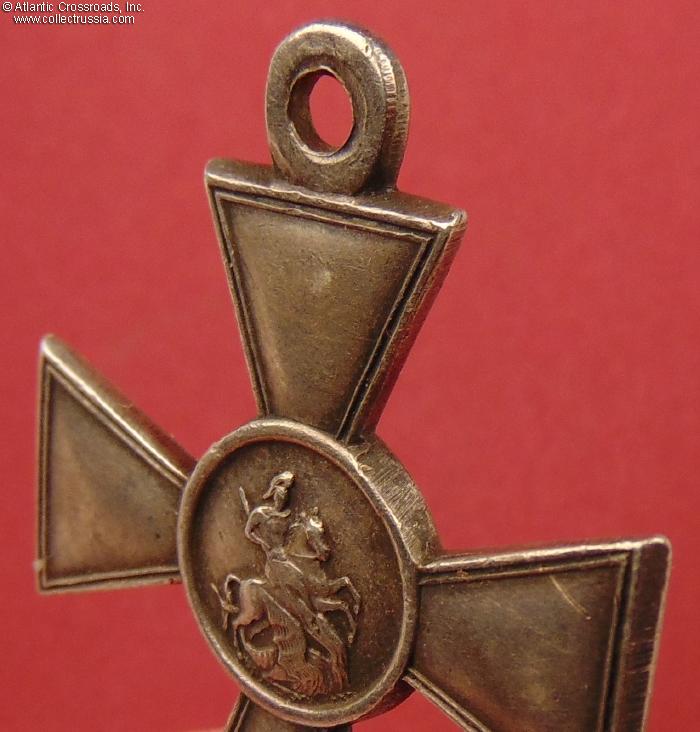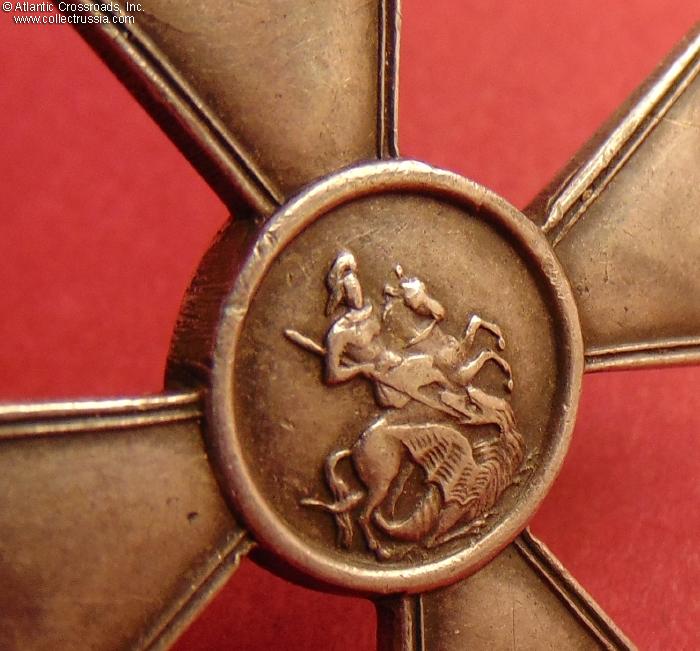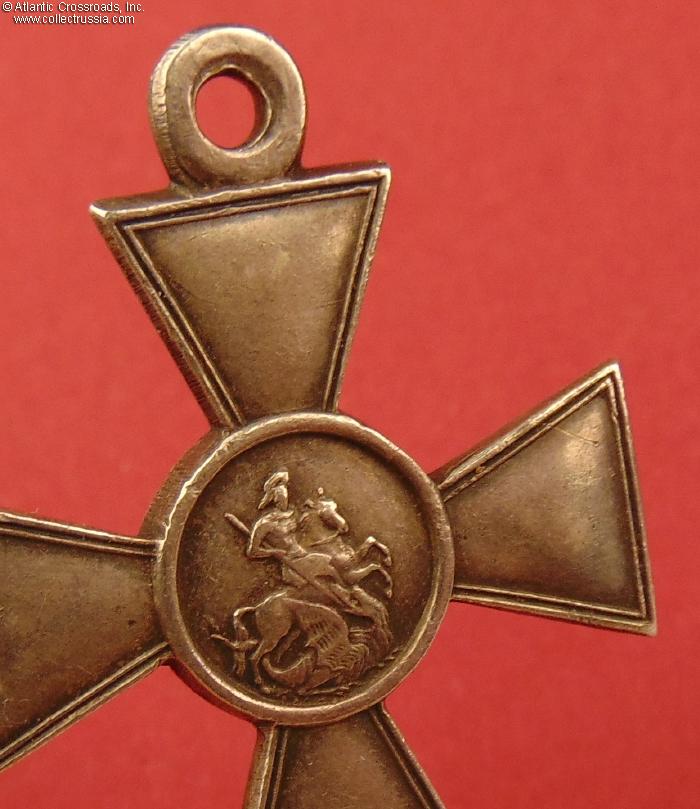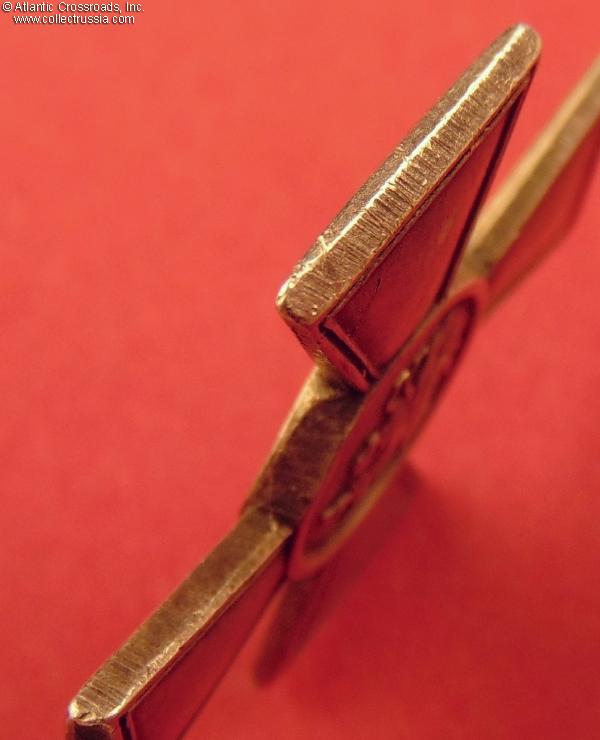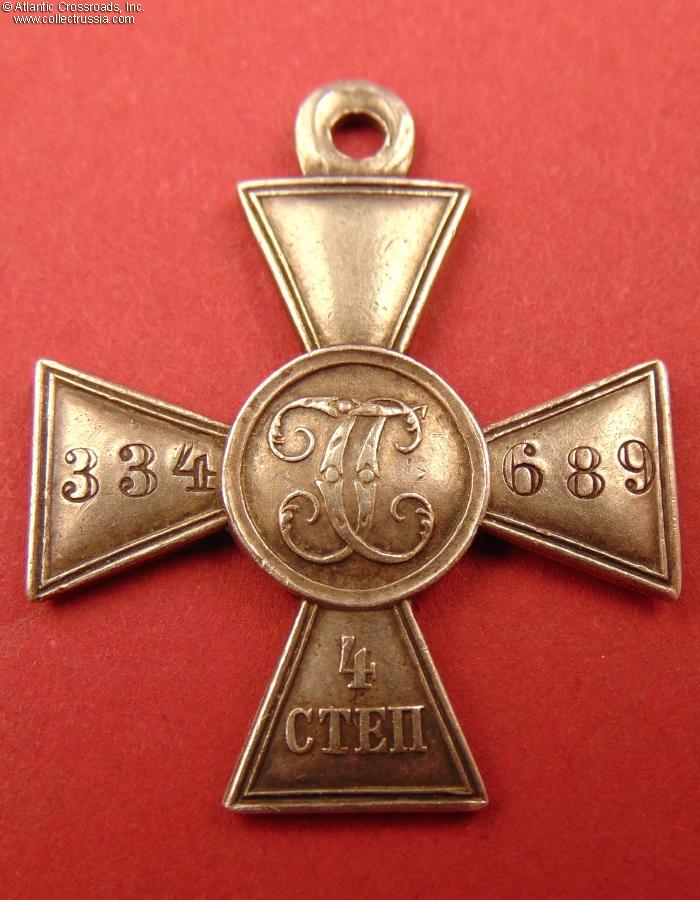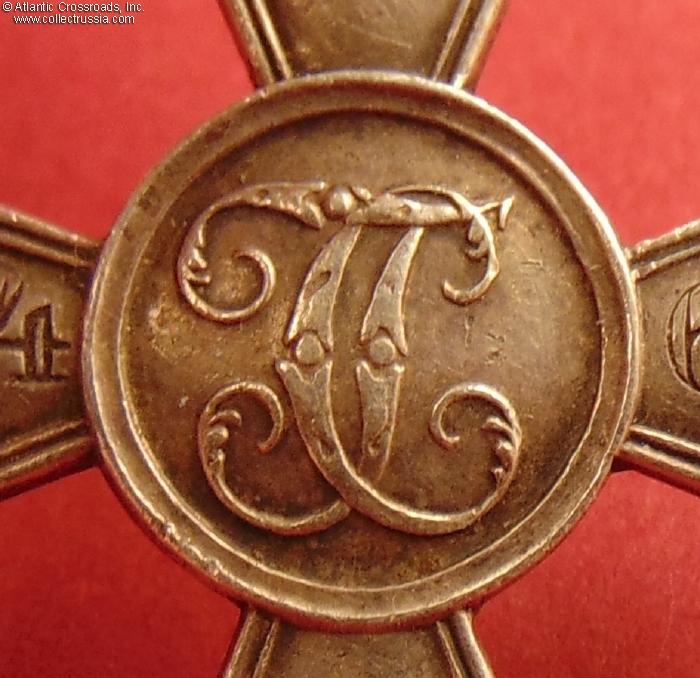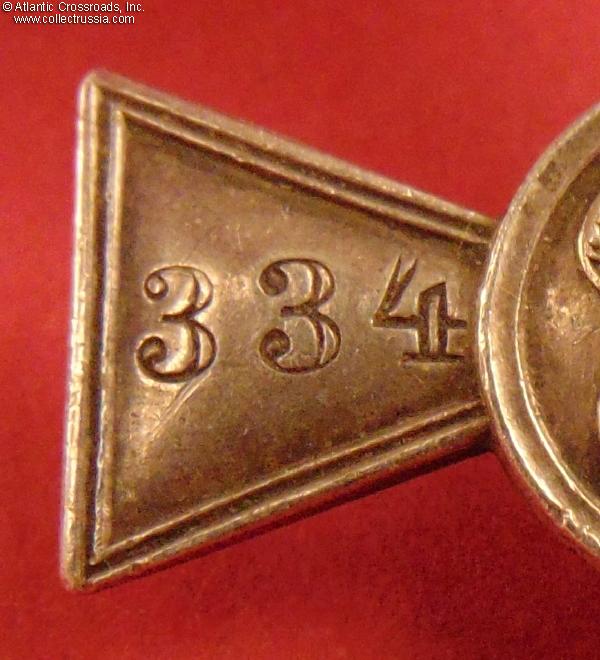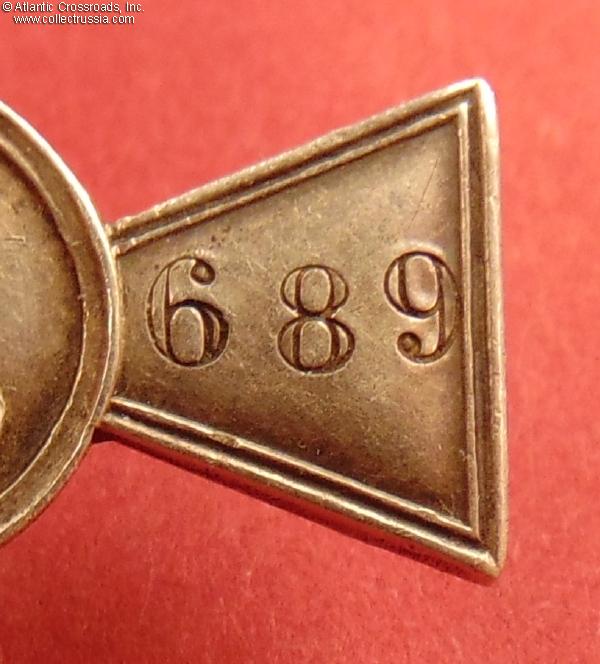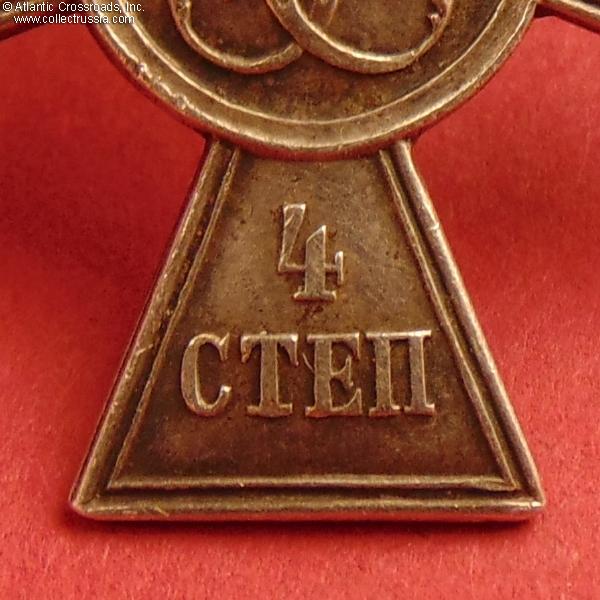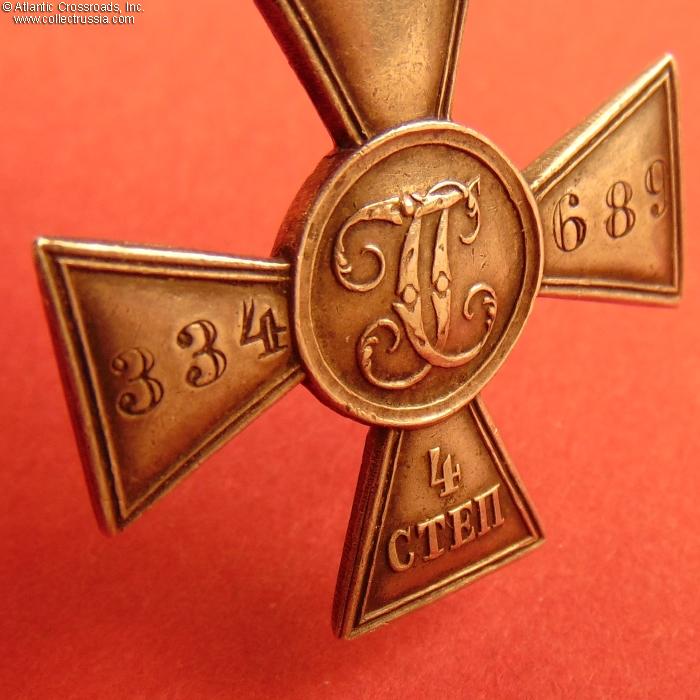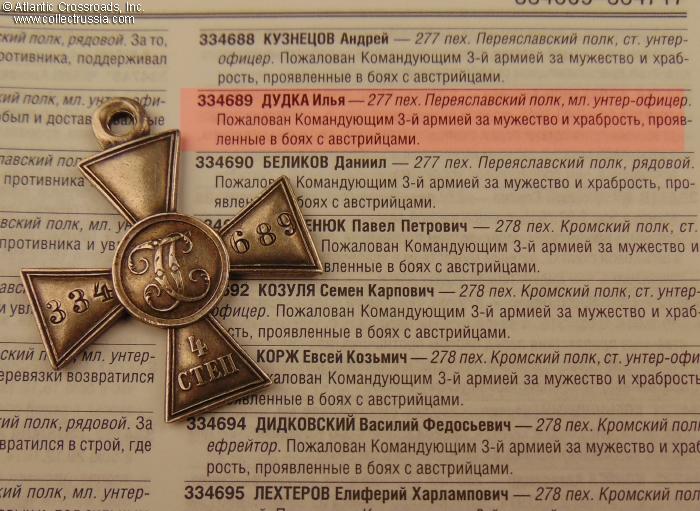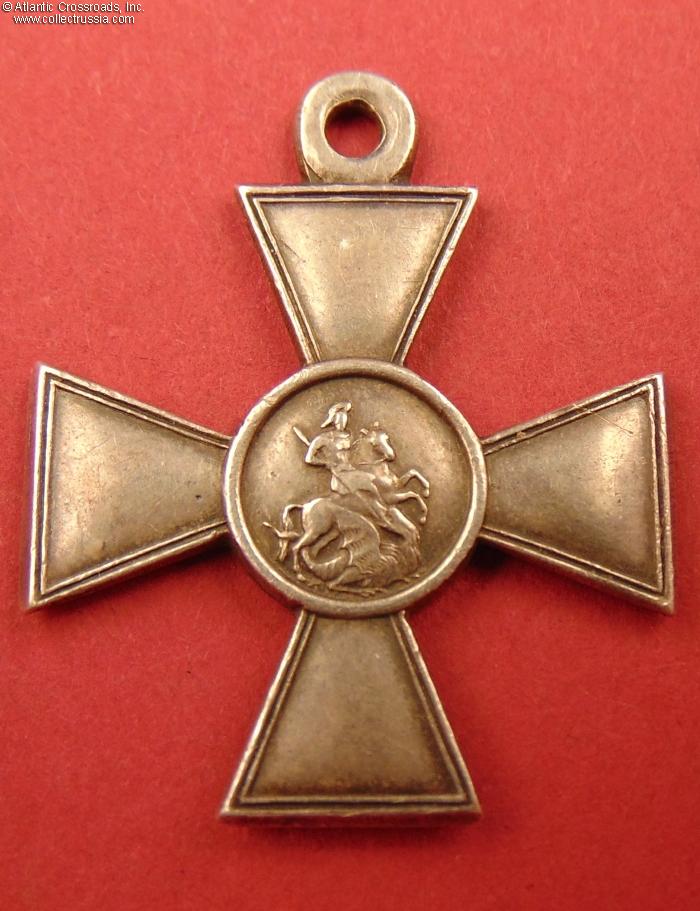
St. George Cross for Bravery, 4th class, #334689, awarded to Junior NCO Ilya Dudka (Илья Дудка), 277th Pereyaslav Infantry Regiment, 70th Infantry Division, 3rd Army.
In silver, measures 41.1 mm in height (incl. eyelet), 34.4 mm in width; weighs 11.0 g. The serial number is stamped in standard manner on the horizontal arms.
Excellent condition. The arms are almost entirely free of the usual wear. There is only a single small scratch on the obverse near the upper edge of the right arm and a few tiny contact marks and dings elsewh
In silver, measures 41.1 mm in height (incl. eyelet), 34.4 mm in width; weighs 11.0 g. The serial number is stamped in standard manner on the horizontal arms.
Excellent condition. The arms are almost entirely free of the usual wear. There is only a single small scratch on the obverse near the upper edge of the right arm and a few tiny contact marks and dings elsewhere (what may appear to be a small scratch along the left edge of the top arm is actually a die break). The raised details of the center medallion are extremely well-preserved and crisp on both sides, exhibiting only a tiniest amount of wear to the raised points. Very attractive even toning to silver throughout. Overall, a well-preserved and attractive piece, better than the vast majority of the surviving WW1 issues.
The 277th Pereyaslav Infantry Regiment was one of the units formed in July 1914 just before the beginning of WWI, obviously as a part of the rapid build-up of the Russian forces in response to the mounting tensions between Austria-Hungary and Serbia. (The Russian mobilization immediately after the Austrian invasion of Serbia prompted Germany to declare war on Russia and quickly escalated what seemed like a local Balkan conflict into a world war.) The new regiment joined the 70th Infantry Division of the 3rd Army activated in the Kiev Military District. In the initial period of the war, the army was deployed under the Southwestern Front (army group) facing the Austro-Hungarian forces. In September 1914, it took part in the successful battle against the Austrians at Rava-Ruska, and along with the other armies of the Southwestern Front, pushed into Carpathian Mountain passes in what became known as the Battle of Galicia. In early October, the 3rd Army reached the area of Gorlice (now a part of Poland), where it was stopped by the stiffening Austrian resistance. Following a static warfare during the winter month, the Austrians received much needed Germann reinforcements and on 1 May 1915, launched a surprise counteroffensive at Gorlice (Gorlice-Tarnow offensive) throwing the Russian Southwestern Front back to its original positions, recapturing the important Galician oil fields, and eventually taking Lemberg (Lviv). The 3rd Army and 70th Division in particular took severe losses at t Gorlice.
By the middle of 1915, the division had been redeployed north and in June-July of that year, took part in the defensive battles against Austrian 1st and 4th Army and German 11th Army at Tanev, Lublin and Kholm. These hard-fought battles turned out unsuccessful for the Russian armies, forcing them to abandon most of Poland. Apparently at some point during this campaign, Ilya Dudka showed outstanding bravery, earning the St. George Cross, 4th cl. Although neither the exact date of the award nor specific feat are mentioned in the brief award citation - as typical of the records for non-commissioned officers and enlisted men - the citation states that the award was bestowed for distinction in fighting the Austrians. Judging by its serial number, the decoration was probably issued in early to mid-1916 for the earlier deeds, because at some point in late 1915 - early 1916 the 3rd Army was shifted north into the Baltic area and for the rest of the war fought German rather than Austrian troops.
$440.00 Add to cart

